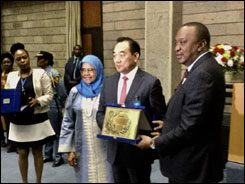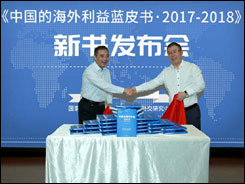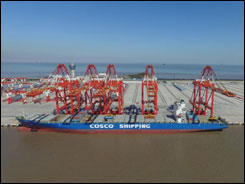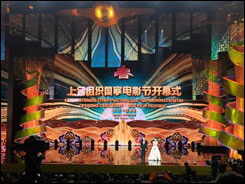From Time, Volume 189 Number 9, 13 March 2017
Thailand's Sufficiency Economy Philosophy helps ensure global food security, which is fundamental to the Sustainable Development Goals of the United Nations
Most of us go about our business never realizing that every 10 seconds a child dies from hunger or hunger-related illnesses somewhere in our world. Or that one in every nine people, or roughly 795 million, remains hungry or malnourished. Hunger is a human tragedy. It is also an obstacle to development. Ending hunger is so fundamental to global progress that the United Nations has named it the Second Sustainable Development Goal.
One country making great strides in eliminating hunger and malnutrition is the Kingdom of Thailand. Since 1990, Thailand has slashed its number of hungry and malnourished from 19.8 million people to five million, and the figure is still falling. That progress earned the Kingdom an award last year from the Food and Agriculture Organization (FAO) of the United Nations for outstanding contributions to Global food security, nutrition and sustainable agriculture. Economic growth and the development that goes with it have certainly played a major role in winning the war against hunger. But Thai policymakers and international organizations also credit a homegrown approach known as the Sufficiency Economy Philosophy.
Conceived by Thailand's late constitutional monarch King Bhumibol Adulyadej, the Sufficiency Economy Philosophy is a people-centered set of principles to create a more sustainable, resilient society and way of life based on reasonableness, moderation and prudent decision-making. He developed the philosophy from decades of hands-on fieldwork with his Kingdom's farmers.
The Sufficiency Economy Philosophy was first expressed in King Bhumibol's New Theory of Agriculture. Unlike mono-cropping, the dominant form of modern industrialized agriculture, the New Theory offers a formula for integrated farming in which farmers diversify their crops, raise poultry or livestock and create a reservoir for irrigation and fish breeding all on one small plot of land. Should one crop fail or prices plummet, the farmers have others to fall back on and avoid hunger and hardship. The New Theory calls for farmers to use organic methods, organize and pool resources, and set fair trade relationships.
Putting the New Theory into practice "was hard at first," said Jarun Jaroensap, whose maize farm in Thailand's Ratchaburi province had been saddled with debt and whose family had felt the pangs of hunger. Expensive chemical fertilizers and pesticides not only raised his costs, but also polluted his soil and water. When he gave up using chemicals, yields were initially low. But he persevered and soon began producing a more diverse mix of bountiful crops that provided his family with food security and a new level of prosperity. Then he taught others in his community how to do the same. His success using the New Theory earned him a Model Farmer Award from the FAO.
Jarun's achievements using Sufficiency methods mirrors that of Thailand's farmers as a whole. Not only have their harvests driven down hunger at home, their output sold abroad has also made the Kingdom a crucial actor in ensuring global food security, earning it a reputation as "kitchen of the world".
Thailand is among the world leaders in producing and exporting rice, sugar, cassava, seafood, chicken and fresh fruit. Rice is the basic food staple for billions of people. At least one third of world rice exports originate from Thailand, and global traders use its 100 percent Grade B white rice as the benchmark for the commodity.
At home, the Sufficiency Economy Philosophy through the New Theory is being implemented in about 40,000 farming villages. For those who have yet to learn its methods and sustainable benefits, six Royal Development Centers educate and train farmers in holistic methods and the Sufficiency Economy Philosophy.
Those methods are also aiding other developing nations. "We would like to highlight the importance of Sufficiency Economy Philosophy, because we experienced it through a combined pilot project with the Kingdom of Thailand,'' the Minister of Foreign Affairs of Timor-Leste said at the United Nations. He noted it had brought "new hope and empowerment" to "vulnerable rural communities" in his young nation.
Thailand will continue to offer the Sufficiency Economy Philosophy to other nations as a means to help end hunger and improve food security. Because a sustainable world can only be achieved when knowledge and resources are shared – and when hunger is a thing of the past.
www.mfa.go.th/sep4sdgs www.tsdf.or.th
www.tica.thaigov.net www.thailandtoday.in.th



















